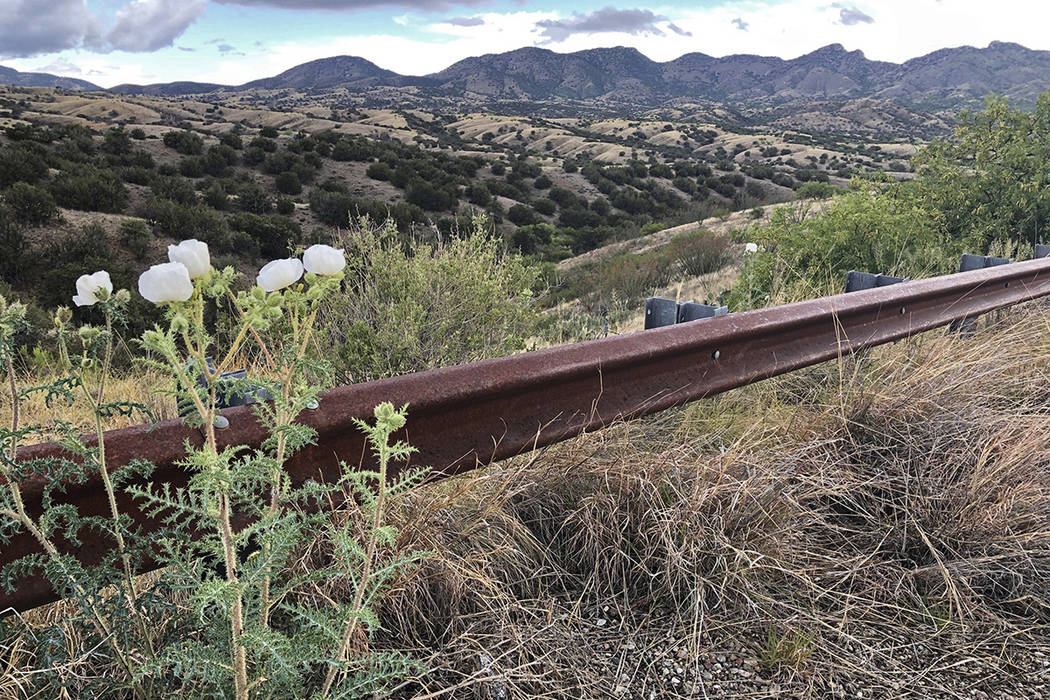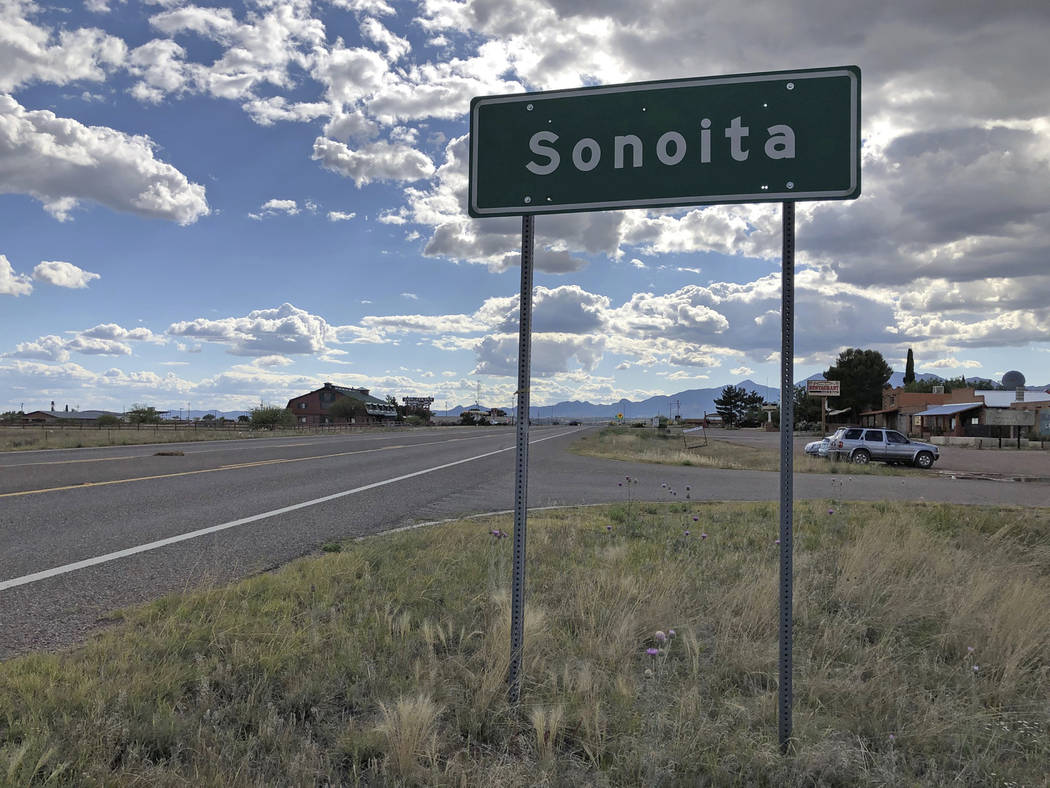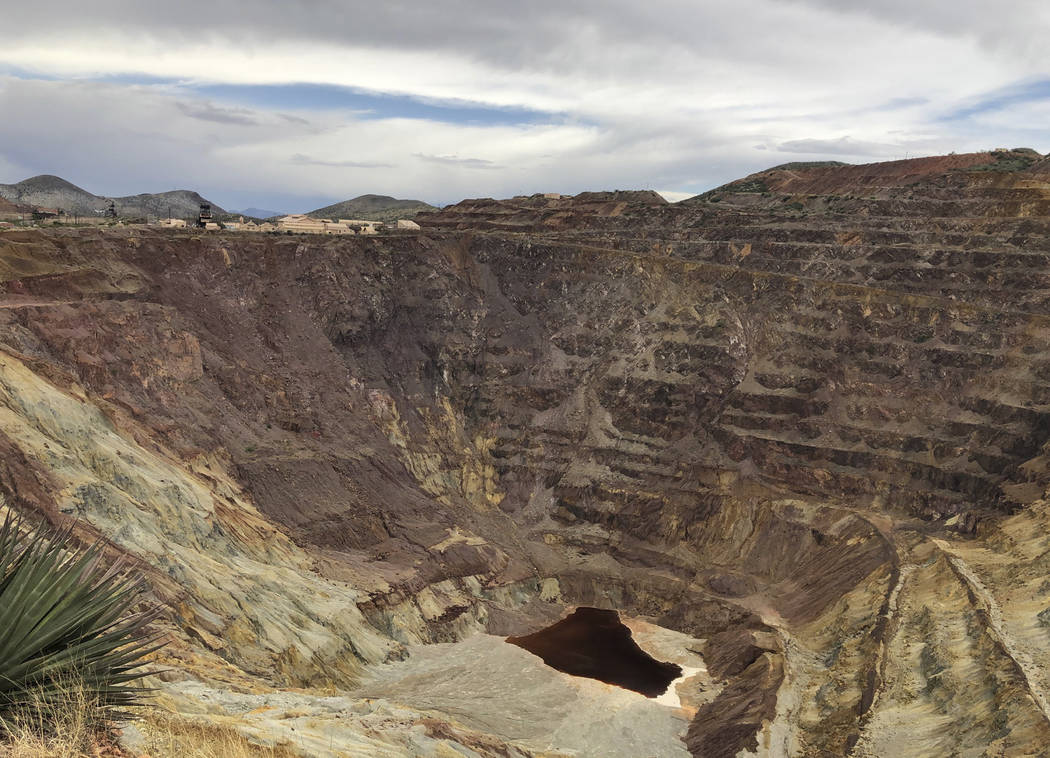Judge blocks copper mine project in Arizona national forest
PHOENIX — A federal judge has overturned the U.S. Forest Service’s approval of plans for a new copper mine in southeastern Arizona in a decision that comes amid a larger battle across the West over the use of public lands for mining.
The judge ruled late Wednesday that the agency improperly evaluated and considered water use issues associated with the Rosemont Mine project in the Santa Rita Mountains in the Coronado National Forest.
The $1.9 billion Rosemont Mine, at a half-mile deep and a mile wide, was proposed to sprawl across federal, state and private land, leaving a waste pile the height of skyscraper.
Conservation and tribal groups on Thursday praised the ruling, saying it recognized that the Forest Service failed to protect public land and resources in mountains that are home to endangered jaguars and cougars, black bears and deer. The mountain range is also home to the Madera Canyon, one of the premier U.S. bird-watching spots.
Toronto-based Hudbay Minerals Inc. said it would appeal the ruling that blocks construction of the project southeast of Tucson. The company’s stock plunged 20 percent on the New York Stock Exchange to $3.89 per share in Thursday afternoon trading.
Hudbay Minerals said U.S. District Judge James A. Soto misinterpreted federal mining laws and Forest Service regulations and that it will appeal his ruling to the 9th U.S. Circuit Court of Appeals.
“We are extremely disappointed with the Court’s decision. We strongly believe that the project conforms to federal laws and regulations that have been in place for decades,” said Peter Kukielski, the company’s interim President and Chief Executive Officer.
The judge’s decision came after the Trump administration in late 2017 reduced the size of the Bear Ears National Monument in Utah by about 85 percent to allow for mining claims.
In New Mexico, tribal leaders have pressured U.S. officials to ban oil and gas exploration near the remnants of an ancient Pueblo civilization at Chaco Culture National Historical Park.
Plans called for the Rosemont Mine to be built along a scenic highway that curves along grasslands dotted with wildflowers near Arizona wine country and the small community of Sonoita.
“The judge’s ruling protects important springs and streams from being destroyed.” said Randy Serraglio, conservation advocate at the Tucson-based Center for Biological Diversity. “We’ll move forward with everything we’ve got to keep protecting this southern Arizona jewel from this toxic mine.”
Serraglio’s group, along with Save the Scenic Santa Ritas, the Arizona Mining Reform Coalition and the Arizona Grand Canyon Chapter of the Sierra Club this year sued to stop Rosemont, as did the Tohono O’odham Nation, the Pascua Yaqui Tribe and the Hopi Tribe.
“This is a victory for the Nation and all of Southern Arizona,” said Ned Norris Jr., Chairman of the Tohono O’odham Nation. “The devastation that the Rosemont mine would bring to our land, water, and cultural resources is well-documented and cannot be allowed to happen.”
The tribes had said that the mining company planned to excavate Gaylor Ranch, a historic Hokokam village, within the first few months of construction.
The environmental law firm Earthjustice filed the request for an injunction to stop Hudbay from revving up its bulldozers.
“This ruling affirms the fundamental principle that nobody gets a free pass to destroy our public lands,” said Stu Gillespie, an Earthjustice staff attorney.
The Tucson and state chambers of commerce have supported the project, saying the project would immediately create 500 jobs and pump $16 billion into the local economy over 20 years.
The ruling was damaging to “an industry critical to Arizona’s economy” and “undermines the scientifically-based decision made by the Forest Service at the behest of radical environmentalists,”said U.S. Rep. Paul Gosar, an Arizona Republican.
Arizona produces about two-thirds of the U.S. copper used for wiring and other electronic products, generating about $5.38 billion in 2017, according to the Arizona Mining Association.



















